数字电子脉搏计的设计(附元件清单,程序,CAD图)
无需注册登录,支付后按照提示操作即可获取该资料.
数字电子脉搏计的设计(附元件清单,程序,CAD图)(毕业论文12300字,CAD图纸5张)
摘 要:脉搏波所呈现出来的形态、强度、速率和节律等方面的综合信息,能反映出人体心血管系统中许多生理疾病的血流特征。根据人体脉搏信号特征,本文采用红外光电式传感器作为脉搏信号检测部分,并设计了信号放大、滤波、整形等电路;采用80C51单片机作为控制核心,结合程序共同实现对脉搏信号的测量与控制,设计了具有键盘输入设定、声音警报提示、测量结果显示功能的数字电子脉搏计。通过调试,表明本系统可以实现对脉搏波动频率的测量,为医生的诊断提供客观依据,具有一定的临床应用价值。本文首先描述设计的整体思路,然后介绍各个部分设计中的细节问题,最后提出一些完善本设计的改进意见。
关键词:脉搏计;传感器;单片机;
Design of the Nuierical Electronic Pulse Accounts
Abstract:The shape,intensity,speed,and rhythm of pulse signals mostly reflect the physical and pathological characters of heart-blood system in human bodies.According to the characteristics of the human pulse signals,the digital electron pulsometer uses the infrared photoelectricity type sensor to take the pulse signal examination part,and uses the electric circuit to enlarge,filter and reshape the pulse signal;It uses the 80C51 monolithic integrated circuit to take the control core,and uses the procedure to survey and control the pulse signal together;it has the keyboard entry established,the sound warning prompted and the measurement result demonstrated functions.Tests show that the system can measure and display the pulse fluctuation frequency,providing an objective basis for doctors to diagnose and having certain clinical value.At the beginning of the paper,the integral notion of the device design is brought out.Afterwards,the detail information of each part is narrated.At last part,some suggestions for improving the device are provided.
Key words: Pulsometer;Sensor;Monolithic integrated circuit
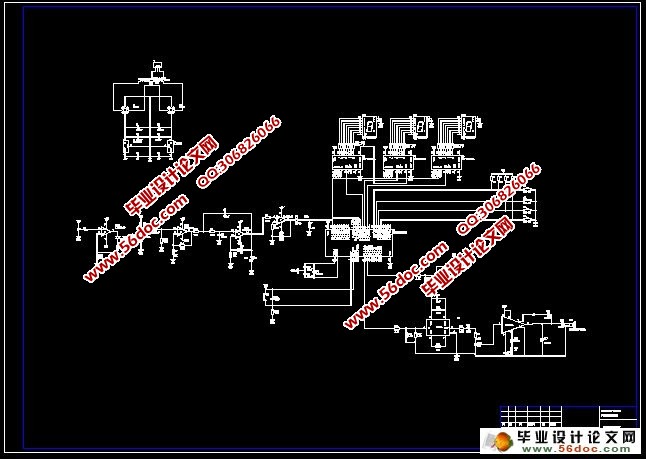
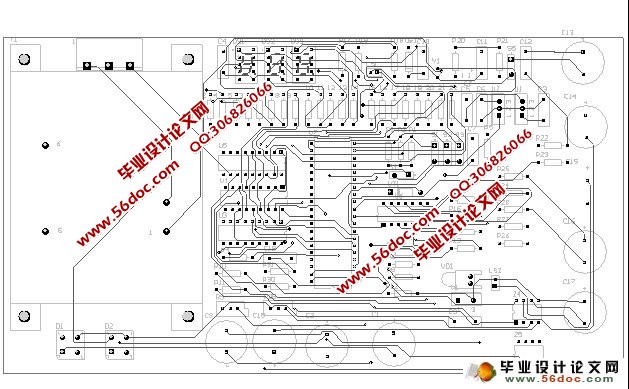
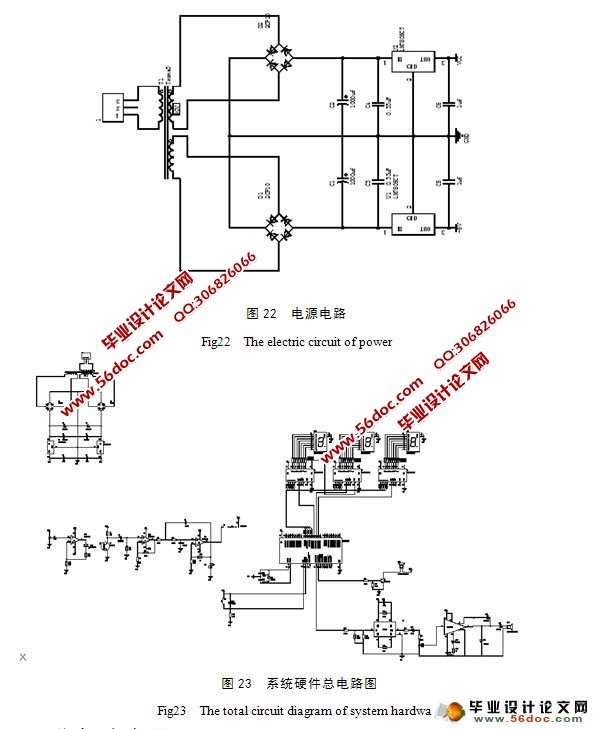
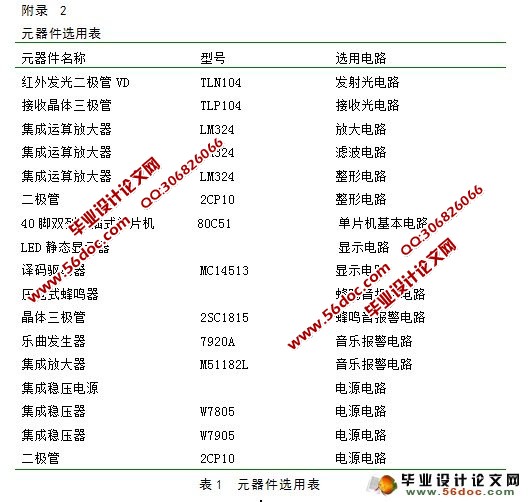
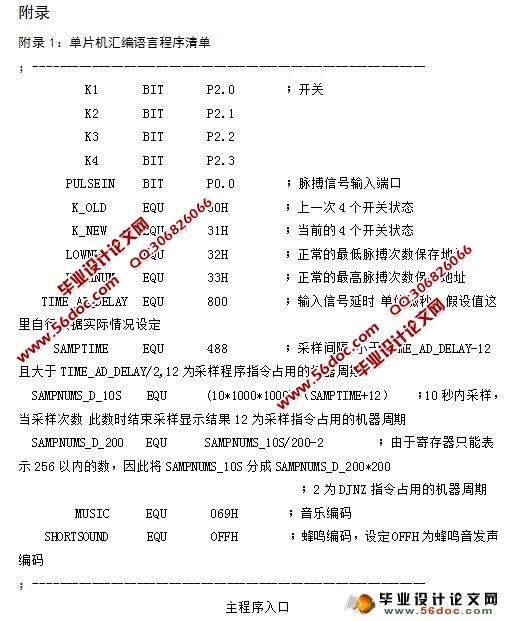
目 录
摘 要……………………………………………………………………………………1
关键词…………………………………………………………………………………1
1前言………………………………………………………………………………1
2 数字电子脉搏计方案的确定………………………………………………………2
2.1 脉搏计基本工作要求及其功能……………………………………………2
2.2 脉搏计基本方案的选择及确定……………………………………………3
3 传感器的选择及其电路的设计……………………………………………………5
3.1 传感器的选用及其原理结构…………………………………………5
3.2 传感器电路的设计…………………………………………………………6
3.2.1 发射光电路的设计…………………………………………7
3.2.2 接收光电路的设计……………………………………………7
4 放大、滤波、整形电路及元器件的选择………………………………………8
4.1 放大电路的设计及其元器件的选择………………………………………8
4.2 滤波电路的设计及其元器件的选择………………………………………9
4.2.1 整形电路的设计及其元器件的选择………………………………10
5 单片机的选择及其基本电路………………………………………………………11
5.1 单片机选型………………………………………………………………11
5.2 80C51的基本电路…………………………………………………………12
6 键盘及其与80C51输入接口电路的设计…………………………………………14
7 显示电路的设计及其元器件的选择…………………………………………15
7.1 显示器的选择及介绍………………………………………………………15
7.2 显示电路的设计及译码驱动器的选择……………………………………16
8 警报提示接口电路的设计及其元器件的选择……………………………………18
9 电源电路的设计……………………………………………………………………20
10 系统总电路图……………………………………………………………………21
11 单片机程序的设计………………………………………………………………22
12 结论………………………………………………………………………………23
参考文献 ……………………………………………………………………………24
致谢……………………………………………………………………………………25
附录……………………………………………………………………………………26
附录 1……………………………………………………………………………26
附录 2……………………………………………………………………………34
